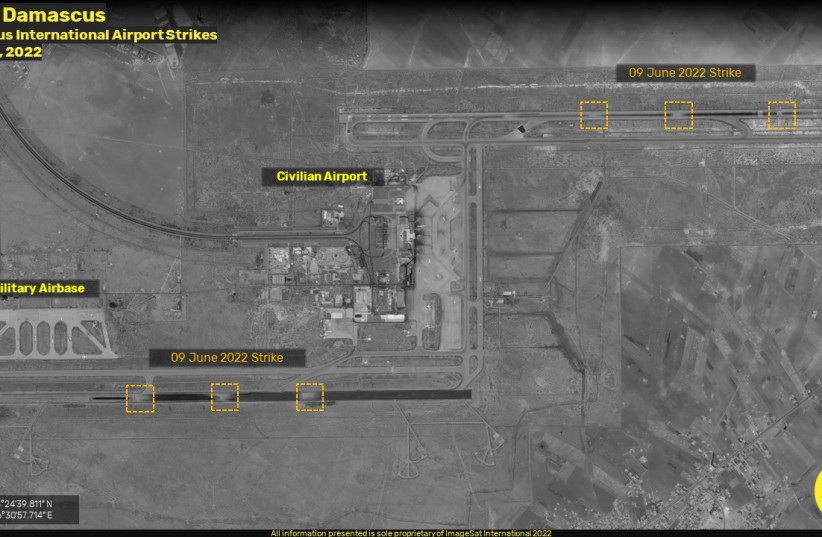Israel has threatened to bomb Syrian President Basher Assad’s palaces if he does not cease or reduce military cooperation with Iran within his territory, the Arabic news site Elaph reported late on Monday.
The Jerusalem Post was unable to independently confirm the dramatic developing story, and the IDF declined to comment. The report could either dovetail with ongoing Israeli efforts to rid itself of an Iranian threat embedded in Syria, or could be an exaggeration of such efforts by various interested parties.
Based in London and owned by Saudis who have a mixed relationship with the Saudi leadership, Elaph has been used in the past by Israeli officials to reach out to the Arab world, including a famous first interview for a Saudi publication by then IDF chief Gadi Eisenkot in 2017.
Eisenkot told Elaph that the IDF and the Saudis had been sharing intelligence on an ongoing basis.
According to an English translation of an Elaph Arabic article, it “learned from a senior source that Israel sent a message to Syrian President Bashar al-Assad, warning him against continuing to cover up Iran’s operations in his country and the transfer of quality weapons to Syria, and informed him that one of his palaces would be a target in the next raid carried out by Israeli fighters in Syria.”

Damascus bombing
The alleged threat comes days after Israel allegedly bombed Damascus International Airport, targeting shipments of advanced Iranian weapons transported by the Iranian Revolutionary Guard Corps to Syria on civilian planes.
ImageSat International (ISI) and Maxar Technologies published pictures of the impact of the attack on Friday night, hours after Syria’s Ministry of Transport announced that the airport outside the Syrian capital was suspending flights due to technical disruptions.
Syria’s state-controlled SANA news agency claimed that Israel carried out strikes against targets south of Damascus around 4:20 a.m. on Friday, wounding one person and causing material damage.
The satellite images showed three impact craters on both the military and civilian runways, rendering them inoperable, which “disabled the entire airport until repair,” ISI said.
Russian response
Russian Foreign Ministry Spokeswoman Maria Zakharova condemned the airstrikes, saying such actions put civilian airlines and civilians in danger.
“We are compelled to reiterate that the ongoing Israeli shelling of the territory of the Syrian Arab Republic, in violation of the basic norms of international law, is absolutely unacceptable,” she said. “We strongly condemn Israel’s provocative attack on the most important object of the Syrian civilian infrastructure.”
Such “irresponsible actions create serious risks for international air traffic and put the lives of innocent people in real danger,” Zakharova said, adding that “we demand of the Israeli side to stop this vicious practice.”
It was the third strike against targets in Syria blamed on Israel in less than a week and was considered an escalation in Israel’s ongoing “war between the wars” to interdict and destroy Iran’s military presence there, especially regarding advanced weapons.
Elaph said that the escalation also occurred as relations between Israel and Russia have deteriorated somewhat over the Ukraine war, leading Moscow to give Iran a freer hand in its operations in Syria.
Until now, Russia had been a moderating force on Iran’s presence in Syria and the proximity to the border of that presence.
Anna Ahronheim and Jerusalem Post Staff contributed to this report.
